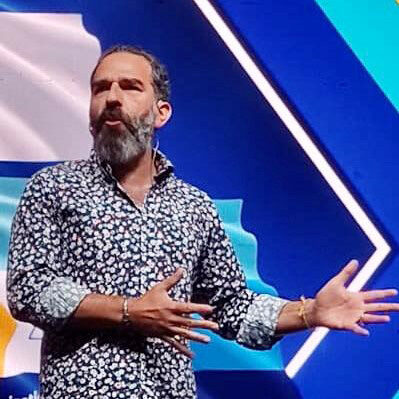Imagine this: Jews worldwide put differences aside and embark on a global campaign focusing on the Jewish Homeland, Israel. Is it possible? Yes. Is it necessary? Absolutely.
This upcoming Shabbat Shekalim is the first of four distinctive Shabbatot leading to Passover. Its text provides us with a very practical approach to fundraising: equal opportunity investment. Moreover its context, the journey from slavery to freedom, reminds us of the transformation our people underwent so long ago. Journeying through the Sinai wilderness forced our ancestors to stop looking back and instead look to the future, a future free from slavery. Within forty years the children of Israel exiting Egypt became the People of Israel entering The Land. Though Moses initiated the idea, the people needed to act.
The verses read in Shabbat Shekalim (Exodus 30:11-16), which I submit is the Jewish People’s first development plan, requires each and every Israelite to donate half a shekel. The text is very specific: “…from twenty years old and above… The rich shall not give more, and the poor shall not give less than half a shekel…”. This equal opportunity fundraising plan served as a census of the people and a collective investment; every Israelite held stock in the project, and everyone was accounted for.
These verses highlight the notion that the collective act of giving money helps people to form a unifying sense of purpose. Theodore Herzl, the father of modern Zionism, borrowed the same idea in the Zionist Movement’s conception of a Jewish National Fund. The development plan we find in Shabbat Shekalim was proven through the success of the blue box, whereby each and every Jew contributed to and was invested in developing the Jewish homeland.
But for there to be investment there must be a cause, a driving force that inspires others to take action. For Moses, the cause was born out of the suffering of the Israelites in slavery. For Theodore Herzl, the cause was in reaction to the persecuted status of the global Jew. For both the solution was a return to the land.
While today’s Jews in and outside of Israel aren’t crying to be freed from slavery or foreign oppression, our collective reaction to internal crises has been to attempt to enhance global Jewish connectivity, or “Jewish Peoplehood”. As a result, agencies are realigning their missions and supporting innovative programs focused on multiple entry points to Jewish life. And yet there is one crucial element of this equation missing–Israel. Both Moses and Herzl had it right when they recognized the importance of Israel as the home of the Jewish People. Israel has been the end point to each of their campaigns; for the Israelites in the wilderness and for the Jews scattered worldwide, it was about making Aliyah, coming to Israel.
What is interesting in today’s campaign for “Jewish Peoplehood”, is that Aliyah is hardly encouraged, let alone addressed. Not in day or supplementary schools, youth groups, agencies or any other realm of Jewish community; at least not in mainstream Jewish life. Instead institutions are focused on their own missions highlighting the environment, social justice, arts and culture, and so on. The notion of living in Israel, of Aliyah as a goal, has been relegated to an administrative sphere—a logistical support network offered through Nefesh B’Nefesh—when it should be driving our collective aspirations.
The “Take Back Zionism” campaign has initiated the important dialogue [of redefining what Zionism means to the 21st century Jew]. However, without a real cause, or an agenda for action, this dialogue will have no real impact and Zionism will remain just that, a dialogue.
Now is the time to encourage action, to give our dialogue a real cause. Israel needs to be on every organizational agenda. In the face of conversion issues, political instability, and an ever-increasing water crisis (to name a few challenges), the totality of our People (and not just a few) must act.
Igor Stravinsky in his Poetics of Music in Six Lessons writes: “My freedom … consists in my moving about within the narrow frame that I have assigned… The more constraints one imposes, the more one frees oneself of the claims that shackle the spirit.”
With so many varying Jewish initiatives and organizations today, the Jewish collective has not mobilized behind a single cause. In order to do so, there need to be some boundaries, a more concentrated focus on a single unifying cause. It needs to be a space wide enough to include the diverse opinions that is Klal Yisrael, and yet narrow in its agenda to free the dialogue from limitations introduced through open-ended ideas.
The genius of Moses and Herzl was the collective entry point accessible to all of Israel. It wasn’t about any particular tribe, denomination, or interest. The land of Israel was an all encompassing value important to all.
As we continue to imagine and hope for what Israel should be, we must recognize what Israel actually is. It is what we cried and longed for in exile by the rivers of Babylon, it is in response to thousands of years of persecution, and it is now the platform upon which we are free to live out our potential. Israel is the essence of Jewish Peoplehood.
Today, Israel needs us, not just for words of encouragement, money, or a visit, Israel needs us there.
As we enter this Shabbat Shekalim, this first of four distinctive Shabbatot leading to Passover, we are reminded of the beauty of community and the power of a collective to administer change. However that potential must be focused. History has proven, that the unifying cause of Klal Yisrael is Eretz Yisrael. By reinstating that cause, I believe we will succeed in the campaign for “Jewish Peoplehood”.

